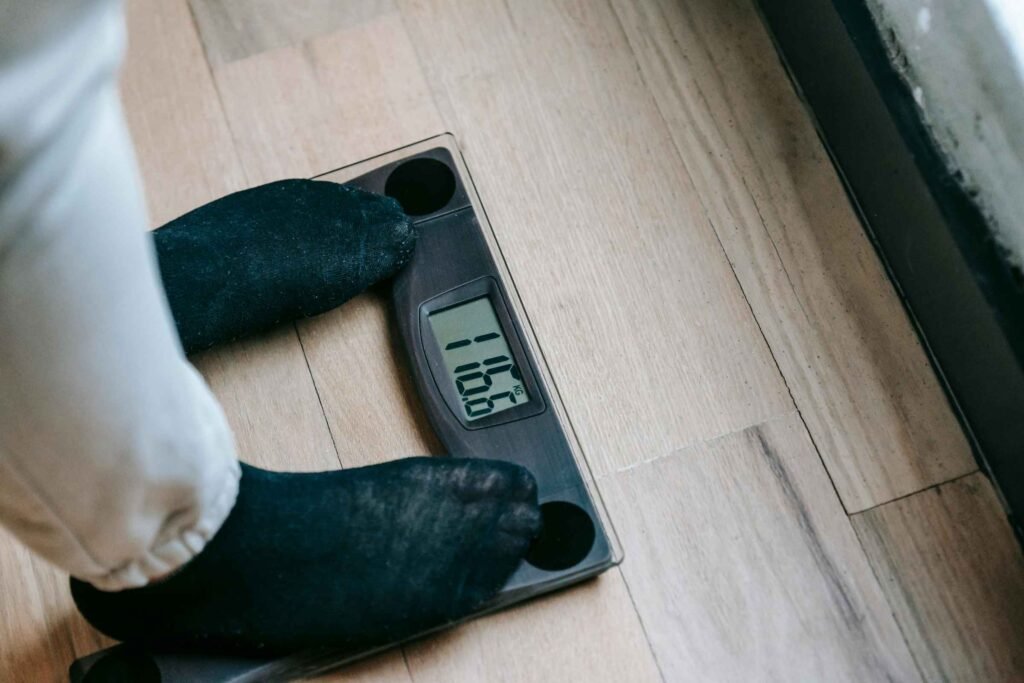Are you into lifting weights or following a vigorous workout routine for months but still wondering why you aren’t seeing muscle gains? Don’t worry. You’re getting stronger and reaping the health benefits that workouts provide. However, if you’re specifically looking to build muscle or gain healthy weight, you’ve come to the right place.
For years, I thought working out alone would build muscles, as seen in movies or TV series, but there are several factors that contribute to muscle growth. Building muscle or gaining healthy weight is not an overnight process. It takes time, but my practical tips will help you unlock your potential for gaining muscle mass.
Lift More Weights
If you’re only doing cardio or bodyweight training, consider starting to lift weights. If you’re already lifting weights and can do a set of 10 reps easily, it’s time to increase the weight. Lifting weights is crucial for muscle gain because it provides the resistance needed to stimulate muscle growth. When you lift heavier weights, your muscles experience microscopic tears. During the recovery process, your muscles repair and grow stronger and bigger.
Why Lifting Weights is Important for Muscle Gain
Progressive Overload: Lifting heavier weights over time forces your muscles to adapt and grow.
Muscle Hypertrophy: Resistance training promotes muscle hypertrophy, increasing muscle size and strength.
Increased Metabolic Rate: More muscle mass boosts your metabolism, helping you burn more calories even at rest.
My Experience
When I began lifting more weights, I noticed a significant change in my muscle mass. Initially, I struggled with heavier weights, but as I persisted, my strength and muscle size increased. The principle of progressive overload played a key role in my muscle growth journey.
Do Compound Exercises
Workouts that target several muscle groups simultaneously, such as squats, bench presses, pull-ups, and deadlifts, are essential for muscle gain. Compound exercises are more efficient because they engage multiple muscle groups, allowing you to lift heavier weights and stimulate more muscle fibers in less time.
Benefits of Compound Exercises
Efficiency: Target multiple muscle groups with fewer exercises.
Strength: Build overall body strength and improve functional fitness.
Hormonal Response: Stimulate greater hormone release (like testosterone and growth hormone) that aids muscle growth.
My Experience
Incorporating compound exercises into my routine was a game-changer. Exercises like squats and deadlifts not only boosted my strength but also helped me gain muscle mass faster than isolation exercises alone.
Get Enough Sleep

Your rest is as important as your training when it comes to muscle gain. While 8-9 hours of sleep is ideal, it’s not always possible to manage. Try to sleep at the same time every day to establish a routine. Quality sleep is essential for muscle recovery and growth because it’s during sleep that your body repairs muscle tissues.
Tips for Better Sleep
Consistent Schedule: Go to bed and wake up at the same time every day.
Sleep Environment: Create a dark, quiet, and cool sleep environment.
Limit Screen Time: Avoid screens for at least an hour before bed to minimize blue light exposure.
My Experience
I used to neglect sleep, thinking it was less important than training. Once I started prioritizing sleep, my recovery improved, and I saw better results in my muscle growth.
Eat Enough
To build muscle, you need to consume more calories than you burn. Aim to add 250-500 extra calories to your daily diet, most of which should come from protein. Calorie surplus contributes to weight gain, while calorie deficit helps in losing weight. Eating enough protein provides the building blocks (amino acids) your muscles need to repair and grow.
Importance of Nutrition
Protein: Essential for muscle repair and growth. Try to get 1.2-2.2 grams of protein per kilogram of your body weight.
Calories: A surplus of calories ensures your body has the energy it needs to build muscle.
Balanced Diet: Include healthy fats and carbs for overall health and energy.
My Experience
Adjusting my diet to include more calories and protein-rich foods was crucial. By tracking my intake and ensuring I had a calorie surplus, I was able to support my muscle-building efforts effectively.
Don’t Skip Carbs
Many people eat as few carbs as possible to avoid fat gain, but if you want to gain muscle, you need enough carbohydrates. Carbs provide the energy required for intense workouts. You may gain a little fat, but it’s a small price to pay for muscle gain. Plus, with proper training and nutrition, you can manage your body composition effectively.
Role of Carbs in Muscle Gain
Energy Source: Carbs are the primary energy source for high-intensity workouts.
Muscle Glycogen: Replenishes muscle glycogen stores, aiding in recovery and performance.
Insulin: Helps shuttle nutrients into muscle cells, promoting growth.
My Experience
Including more carbs in my diet was a revelation. It provided the necessary energy for my workouts, and I noticed significant improvements in my performance and muscle gain.
Keep a Food Journal
Tracking what you eat and how many calories you’re consuming is crucial. A food journal helps you monitor your progress and make necessary adjustments. Weigh yourself weekly to track your muscle gain. If you’re not gaining weight, evaluate your diet and find areas where you can add extra calories.
Benefits of a Food Journal
Accountability: Keeps you accountable for your dietary choices.
Insight: Provides insight into your eating habits and nutritional intake.
Adjustments: Helps identify where you can improve or adjust your diet.
My Experience
Keeping a food journal was instrumental in my journey. It allowed me to track my intake, make informed dietary choices, and ensure I was on the right path to gaining muscle.
Weigh Yourself Weekly

Most people weigh themselves regularly only when trying to lose weight, but it’s important to measure your progress when trying to gain muscle as well. Keep a scale in your home and weigh yourself at the same time every week. It’s best to weigh yourself after using the toilet and before breakfast in the morning.
Importance of Regular Weigh-Ins
Progress Tracking: Helps monitor your muscle gain and make necessary adjustments.
Consistency: Weighing at the same time ensures accurate measurements.
Motivation: Seeing progress can be a great motivator.
My Experience
Regular weigh-ins kept me motivated and informed about my progress. It helped me stay on track and make necessary adjustments to my diet and training.
Consider Taking Supplements
Whey protein and creatine are two of the best and safest supplements for muscle gain. Whey protein provides a convenient source of high-quality protein, essential for muscle repair and growth. Creatine increases your workout performance, allowing you to lift more weights and do more reps. Studies have found that taking creatine can help you perform 14% more reps with similar weights. However, always consult a healthcare professional before starting any supplements.
Benefits of Supplements
Whey Protein: Convenient and effective source of protein.
Creatine: Enhances workout performance and muscle recovery.
Safety: Both supplements are well-researched and generally considered safe.
My Experience
Incorporating whey protein and creatine into my regimen made a significant difference. I felt stronger during workouts and recovered faster, which contributed to my muscle gains.
My Personal Journey
When I started my fitness journey, I focused solely on working out, believing that was all I needed to build muscle. Months passed, and while I felt stronger, I wasn’t seeing the muscle gains I expected. That’s when I realized there was more to muscle growth than just lifting weights.
Implementing the Changes
Lifting More Weights: I started increasing the weight I lifted, progressively challenging my muscles.
Compound Exercises: Incorporating compound exercises like squats and deadlifts made my workouts more effective.
Prioritizing Sleep: I improved my sleep habits, aiming for a consistent sleep schedule.
Eating More: I adjusted my diet to include more calories, focusing on protein-rich foods.
Not Skipping Carbs: I made sure to consume enough carbs to fuel my workouts and aid muscle growth.
Food Journal: Keeping a food journal helped me track my progress and make necessary dietary adjustments.
Regular Weigh-Ins: Weekly weigh-ins kept me motivated and informed about my progress.
Supplements: I started taking whey protein and creatine, which significantly improved my performance and recovery.
The Results
These changes transformed my fitness journey. I began to see noticeable muscle gains, felt more energetic during workouts, and my overall performance improved. The combination of proper nutrition, consistent training, adequate rest, and strategic supplementation unlocked my potential for muscle growth.
Building muscle faster requires a holistic approach that goes beyond just working out. By incorporating weight lifting, compound exercises, adequate sleep, proper nutrition, and possibly supplements, you can achieve your muscle gain goals. Remember, patience and consistency are key. Keep pushing yourself, and you’ll see the results you desire.
I hope my journey and tips inspire you to take your muscle-building efforts to the next level. Stay dedicated, and the results will follow!




Pingback: Getting Back in Shape: My Simple Workout Routine After a Break